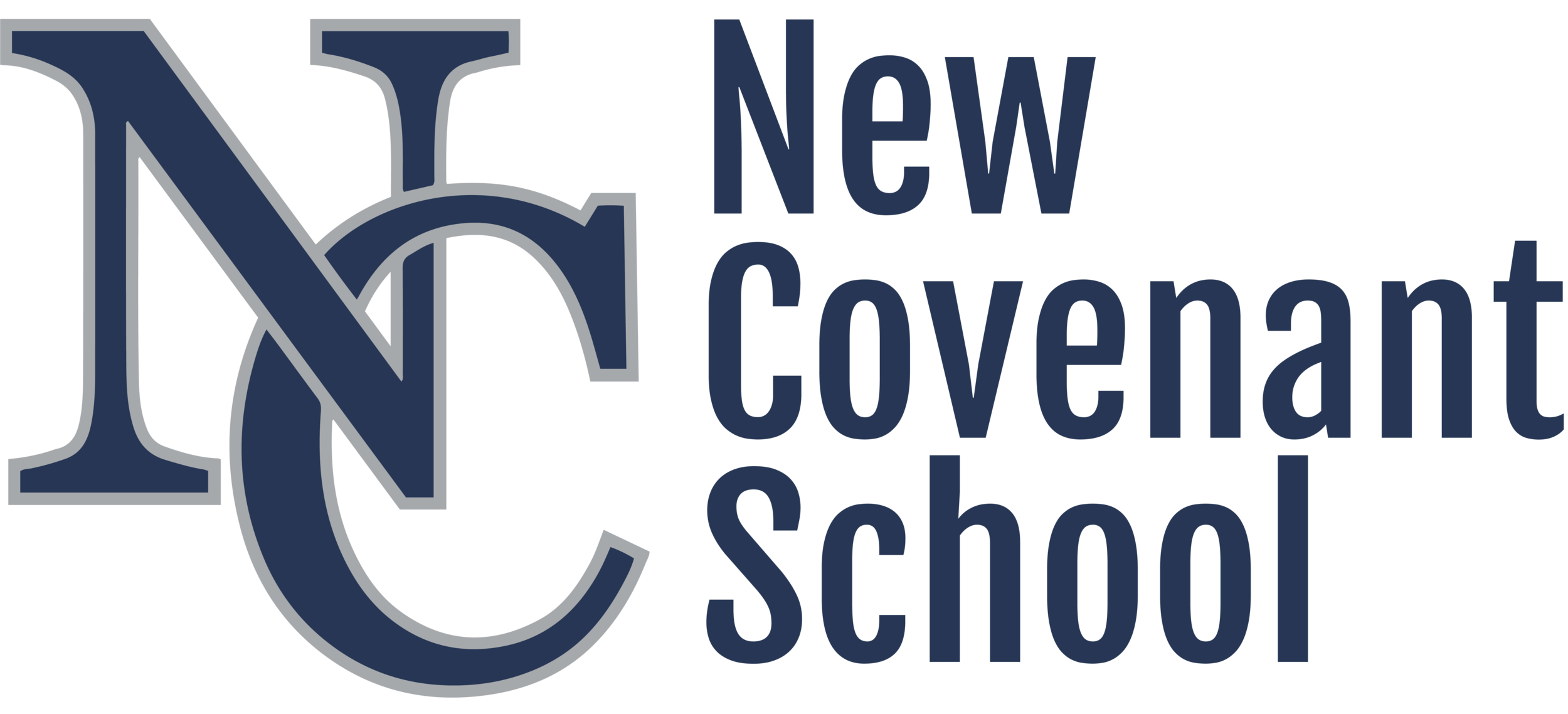Student Work Sample - Michelann Settle, Class of 2016
 The Junior and Seniors in Mr. Canney's Modern History class recently wrote an essay from the question, 'What are the sacraments?'. In this essay students had to explore what sacraments are, how have they been misunderstood, and how they are to be rightly understood.Junior Michelann Settle (pictured left with brother and NCS 2014 graduate Thomas Settle) composed a thoughtful and clear essay that directly addresses the issue. Please read it below. We hope it is edifying to you and pleasing to our Lord.
The Junior and Seniors in Mr. Canney's Modern History class recently wrote an essay from the question, 'What are the sacraments?'. In this essay students had to explore what sacraments are, how have they been misunderstood, and how they are to be rightly understood.Junior Michelann Settle (pictured left with brother and NCS 2014 graduate Thomas Settle) composed a thoughtful and clear essay that directly addresses the issue. Please read it below. We hope it is edifying to you and pleasing to our Lord.
What are the Sacraments?
The sacraments are God-given signs and seals that recognize His own power, mercy, and grace towards us. It is important for us, as believers, to recognize them as neither symbolic nor literal. God has always used the sacraments to nourish us spiritually by declaring his new covenant with us.
In the time of the nation of Israel, God had not sent down the Holy Spirit to the elect. At that point in time, God's people were atoned for by tribe. Every leader was circumcised on behalf of his tribe. The God-given sign of circumcision was a seal to the God-given righteousness through faith in Christ's future death and resurrection. Christ physically became our leader when He lived as a human and died on our behalf. Now that we look back on His sacrifice, we trust that He conquered death for us. God baptizes His elect with the spirit. We die to our sin along with Jesus, so that we can be raised to life into the body of the invisible church, which is the body of Christ. Physical baptism is important, however it is not a means of salvation. Being physically baptized is a sign of rebirth and renewal and a seal of God's gift of salvation. This sign marks us as apart of God's covenant.
In the Old Testament, when the Angel of death passed over Egypt, God gave the Israelites instructions to paint a lamb's blood on their doorposts as a sign of the salvation that God gave them, which was a seal of assurance. From that night until the last supper, God's people celebrated the Passover and God's mercy that came through it. During the Last Supper, which was the first communion, Jesus gave thanks, broke bread, and poured wine. He said that the bread was His body, which was broken on our behalf, so that we could be raised with Him. He also said that the cup of wine was the new covenant in his blood which was shed for the elect. When we take communion every Sunday, we come to the table giving thanks to God for what He has done for us. Thankfulness causes us to lose our negative focus on the world, and realize how broken we would be without Christ, who broke himself for us. Communion is a sign that Jesus saved us by sacrificing himself and a seal that we are atoned for through the new covenant in Christ's blood. God cleanses us when we take communion by reminding us of these things. The bread and wine are neither merely symbols of the crucifixion, nor Christ's physical body and blood.
God uses sacraments as His holy way to communicate the gospel to us. The sacraments do not take place the gift of salvation, rather they are signs and seals of it. It is for our spiritual nourishment that we practice the sacraments described in the New Testament and we must acknowledge that they are means of God's grace.
